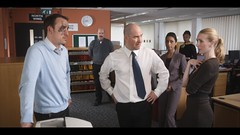
You’re CV or Curriculum Vitae is a sales document. It’s your opportunity to sell yourself to a prospective employer. But is your CV selling you or is it costing you your chance of a dream job? If you consider the following points your chances of success will be improved.
A CV is normally a 2 or 3 page document with a covering letter highlighting your specific skills and abilities. It also gives you the chance to outline previous experience you have to offer to your prospective new employer. Think about what the employer is looking for in the candidate, with this in mind arrange your most significant skills and experiences as early as possible to help demonstrate that you meet the requirements of the job.
Your CV should ideally be no longer than 2 or 3 pages or 3 to 4 pages for CVs for contract personnel. The prospective employer will initially scan your CV for suitability within the first 30 seconds, so to ensure you have the most impact, follow this structure of presenting key points:
Your Full name and Contact Details
Your full address, telephone number(s) and email address.
A Personal Statement – (optional)
Employers are usually impressed if you include a focused idea of where you would like your career to lead. Although not essential, it’s a good idea to include a statement about yourself.
Education/Professional Qualifications
List your academic successes listing your highest qualifications first and include memberships of professional bodies.
Technical Expertise/Skills Summary
Provide a bullet-point guide to the technical skills you possess and trained in. This gives the prospective employer the chance to see immediately that you have the key skills to match their vacancy.
Work Experiences
Provide a chronological list of company names from present or most recent job backwards, a description of each of their areas of business, duties and responsibilities at each. Include key technical terms associated the job and the equipment used. Ensure that each section of employment is clearly headed up with the employing company name and your title(s).
Other Responsible Positions
Gives details of any appointments you have also held in professional organisations, this should include related and no related positions. Employers like to see evidence that you have managed to command the respect of your peers.
Leisure interests
List a few of your principal leisure activities, so that the employer can get an idea of the sort of person you are.
Referees
In this early stage of your application it is not necessary to state the full contact details of your referees. These can be provided on request at a later date.
It is also worth remembering the following points when creating your CV:
Reasons for leaving jobs
It’s not advisable to include these details on your CV. Any statement included could easily be misinterpreted. Keep your CV positive and factual and leave this topic for discussion in an interview.
Salary
This is a subject that should be left for discussion at a more appropriate time. Salary levels are dependent on many variables and they can be easily misconstrued, if you are not careful.
Work Experience
Include work experience that highlights your skills and cover any gaps in your experience with an indicative comment. Provide a factual explanation for the gap time. If you are a recent graduate with little work experience, consider skills learnt at university, your own dissertation or thesis project and any volunteer work. Provide honest opinions of your strengths in key areas – don’t be afraid to say you are good at something if it truly is one of your skills. Focus on how you can make a positive contribution to the new business with your personal skills.
Presentation of your CV
Finally, ensure your CV is written in a clear and easy to read font. Use bold fonts to enhance particular points, especially those like skills and educational achievements. Carefully proof-read and spell check the document. When reading through your CV, look to place yourself in the position of an employer and ask yourself – does this CV really give you the information you want in the best possible way?
Derek Rogers is a freelance writer who represents a number of UK businesses. For information on online recruitment and job vacancy services, he recommends Matchtech, the UK’s leading Technical Recruitment Agency.
Image taken on 2008-11-14 03:24:49. Image Source. (Used with permission)
No related posts.
